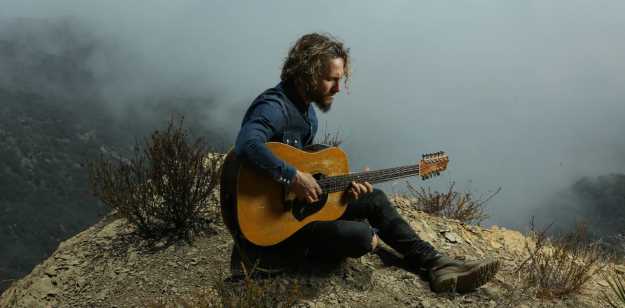|
Taken from New Hampshire (Jul 11, 2018)
Coming 'Home'
John Butler Trio's do-it-yourself mentality leads to lots of high notes
by CHRIS BIERI
Special to the Union Leader

John Butler Trio will be performing tracks from its forthcoming album as well as reinventing classics such as "Betterman," "Zebra" and "What You Want." (Courtesy photo by James Minchin III) |
John Butler might not have been a DIY music pioneer, but he's embodied that ethos as much as any artist from the past 20 years.
And like many DIY musicians, it was more a necessity than it was a mandate for independence.
Butler began his musical career busking in his hometown of Fremantle, Australia.
When his fans wanted a recorded version of his music, he recorded them cassette tapes.
When his career grew, he co-founded Jarrah Records, which has released John Butler Trio albums over the past 15 years.
"Essentially, it started off as a necessity," Butler said. "For a lot of musicians, it's the way it is. I started busking and people asked me for recordings and it was, 'Cool, let's meet this demand.' It's not like any music shop was going to sell my albums. You record, produce and perform; you become a micro-music industry very quickly."
The John Butler Trio formed in the late 1990s and soon developed an audience in Western Australia. The band's second album, "Three," which was filled with rootsy jams, sold more than 100,000 copies. Produced by the John Butler Trio and Shaun O'Callaghan, the album continued his DIY mantra.
"It's something we've always, in one way or another, tried to do," Butler said. "Being independent has allowed our career to be. It wasn't an ideological head space. When you want to do something and you don't want the wait for the world to deliver it for you, you do it."
The John Butler Trio continued to produce albums and tour successfully on the heels of "Three." The band opened for the Dave Matthews Band and John Mayer while playing some of the top festivals in the U.S., including South by Southwest and Bonnaroo.
Butler's unique sound on the acoustic guitar can be attributed to his attraction to open tunings, and he counts finger style legends Leo Kottke and Tony McManus as influences.
"I discovered ... and got obsessed with open tuning and writing and playing songs," he said.
The group's last album was 2014's "Flesh & Blood," but they are planning a release for this fall called "Home."
Butler said the new album mixes the group's earthy sound with a more digital feel.
"A lot of my influences are from more computer-based music, whether it be hip hop or something that's got a programmed beat," he said. "I'm imagining (the songs) to some programmed beat or back beat. I was really trying to let this come out as purely as possible. I did a lot of preproduction myself with my computer and guitar. At times, it's programmed beats with folk songs and (us) trying to make them sound natural and not too heady. It's the closest I've got so far to bringing those two sounds together."
In the past decade, Butler has taken his own desire for independence and put it in the hands of other artists.
Butler and his partner Danielle Caruana developed The Seed Fund, which is financed by donations and distributes more than $100,000 in grants annually to Australian artists to follow their own ambitions.
"The Seed assists Australian artists from any background, creating art and music across any genre, to establish themselves as self-sustaining, professionals," according to the fund's site.
|